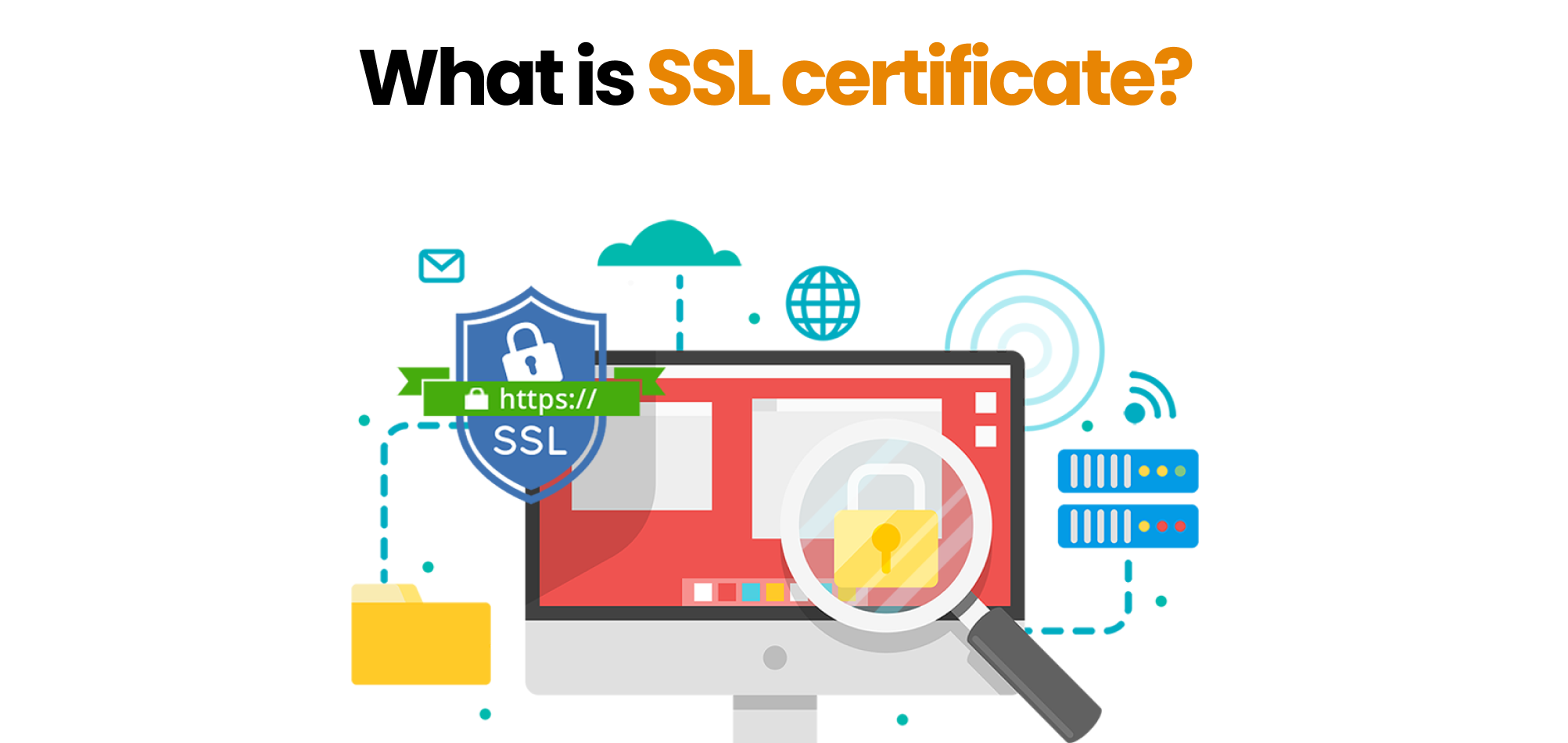In the digital age, having a secure website is not only about protecting user data, but also essential for ensuring good search engine rankings. One of the most important elements for your site’s security and SEO is implementing a Secure Sockets Layer (SSL) certificate. But what makes an SSL certificate so important, and why should you consider it a must-have for your custom domain?
In this guide, we’ll explore what an SSL certificate is, how it works, and why it’s essential to improving both your website’s security and its visibility on search engines.
What is an SSL Certificate?
An SSL certificate is a security tool that encrypts communications between a user’s browser and the server hosting your website. When a website uses an SSL certificate, the address in the browser bar begins with “https://” instead of “http://”, and a padlock icon appears next to the URL, indicating that the connection is secure.
SSL protects sensitive user data, such as personal information, payment details, and login credentials, from potential cyber attacks. This way, any information transmitted between the site and the visitor is safe and away from the hands of hackers or scammers.
Why an SSL Certificate is Crucial to Your Site’s Security
Protection of Sensitive Data: The primary purpose of an SSL certificate is to protect sensitive information that is transferred between the user and your site. This is especially important if your site handles personal or sensitive data, such as credit card numbers, addresses, and login credentials. Without an SSL certificate, this data can be intercepted by hackers through “man-in-the-middle” attacks, putting your users’ security at risk.
Increase User Confidence: The presence of the green padlock and the prefix “https://” in the address bar communicates to users that the site is safe and reliable. A site without an SSL certificate could raise suspicions in visitors, who could abandon it for fear of being the victim of fraud or attacks. This is especially true for e-commerce sites or any platform that requires the entry of personal data.
Avoid Security Warning Messages: Modern browsers, such as Google Chrome, flag sites that do not use SSL with “Not Secure Site” warnings. These messages discourage potential customers or visitors from navigating further into the site, resulting in lost traffic and business opportunities. By implementing an SSL certificate, you prevent visitors from being greeted with these alarming warnings.
L’Impattato dell’SSL sulla SEO
Oltre alla sicurezza, un certificato SSL influisce anche sul posizionamento SEO del tuo sito. Google, da diversi anni, considera l’SSL come un fattore di ranking, promuovendo attivamente i siti web sicuri rispetto a quelli non sicuri. Ecco come l’implementazione di un certificato SSL può migliorare la SEO del tuo sito.
- Fattore di Ranking su Google:
Nel 2014, Google ha annunciato che l’utilizzo del protocollo HTTPS (che richiede SSL) sarebbe diventato un fattore di ranking nel suo algoritmo di ricerca. Questo significa che i siti web che utilizzano SSL hanno maggiori probabilità di posizionarsi meglio nelle ricerche rispetto ai siti che non lo utilizzano. Anche se l’SSL non è l’unico fattore di ranking, è una parte importante di una strategia SEO complessiva.
Esperienza Utente e Tasso di Rimbalzo:
I visitatori si sentono più sicuri e sono più propensi a navigare su un sito protetto da SSL, riducendo il tasso di rimbalzo (ovvero, il numero di persone che abbandonano il sito subito dopo averlo visitato). Un basso tasso di rimbalzo è un indicatore per Google che il tuo sito offre una buona esperienza utente, il che può influire positivamente sul tuo posizionamento nei risultati di ricerca.
- Velocità di Caricamento del Sito:
Il protocollo HTTPS, supportato dal certificato SSL, è ottimizzato per migliorare la velocità di caricamento del sito. Google premia i siti web che caricano velocemente, rendendo questo un ulteriore vantaggio SEO.
Sicurezza del Contenuto:
Un certificato SSL previene la manipolazione del contenuto. Gli hacker non possono intercettare o modificare le informazioni che passano tra il sito e gli utenti. La garanzia dell’integrità dei contenuti trasmessi è un altro segnale positivo per Google e altri motori di ricerca, che preferiscono indicizzare contenuti sicuri e autentici.
How to Get an SSL Certificate for Your Domain
Getting an SSL certificate for your custom domain is a relatively simple process. You can purchase the SSL certificate through your hosting provider or domain registrar. There are different types of SSL certificates depending on the level of security you want to implement:
- Domain Validation (DV) SSL Certificate
This is the easiest and quickest type of certificate to get. It only verifies that you own the domain, without requiring additional business checks. It is suitable for small websites or blogs.
- Organizational Validation (OV) SSL Certificate
It requires verification not only of the domain, but also of the organization that runs the site. This type of certificate is recommended for companies that want a higher level of security than the DV.
- Extended Validation (EV) SSL Certificate
It offers the highest level of security. In addition to verifying the domain and organization, the EV certificate activates the “green padlock” and displays the company name in the address bar. It is recommended for large companies and platforms that handle financial transactions.
SSL Certificate Maintenance and Update
Once you have implemented your SSL certificate, it is crucial to ensure that it is always up to date. Most SSL certificates are valid for one or two years, after which they must be renewed. Failure to renew may result in the loss of HTTPS and the site being exposed to security vulnerabilities.
Also, make sure you are constantly updating your SSL certificates to stay up to date with new security technologies. Cyber attacks are also evolving, and having outdated SSL certificates can leave your site vulnerable.
Implementing an SSL certificate not only improves the security of your website, but also positively impacts its positioning in search engines. Protecting your users’ data, increasing their trust, and optimizing your site for SEO are just some of the benefits of having SSL active.
If you are creating or managing a custom domain, such as those offered on WeRegister, be sure to equip it with an SSL certificate to ensure a secure and optimized experience for both your users and search engines.
Get started today with WeRegister to register your custom domain and secure your online presence with a reliable SSL certificate.

